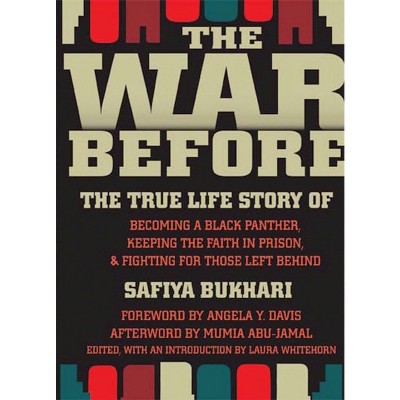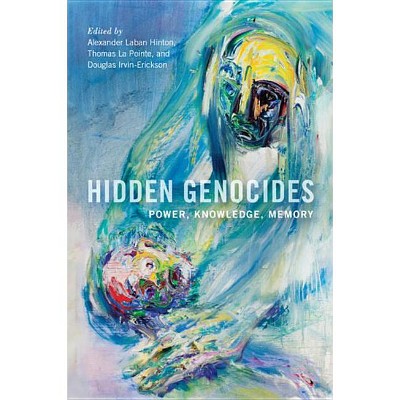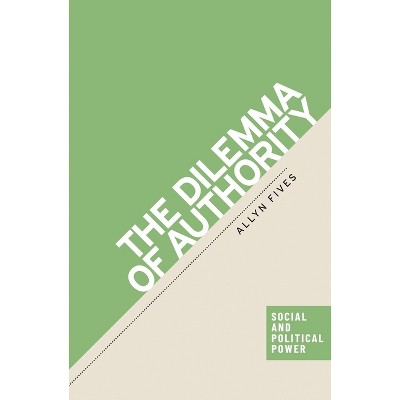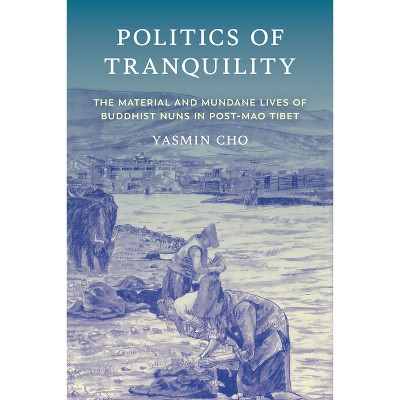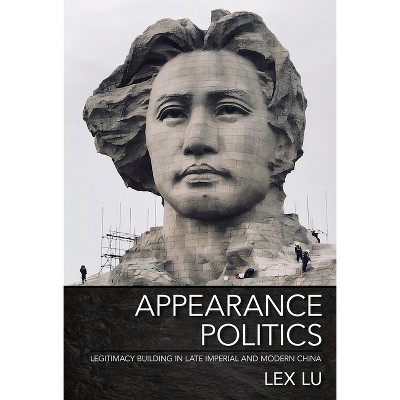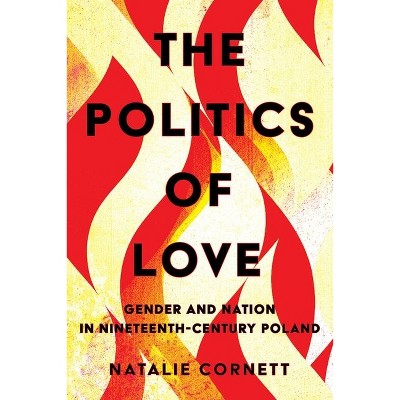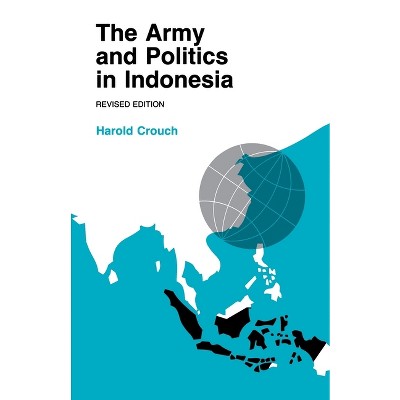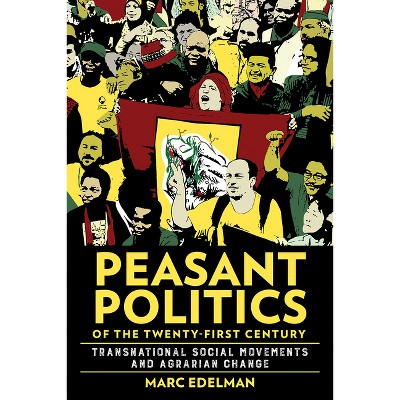Sponsored

Darfur - (Crises in World Politics) 3rd Edition by Gérard Prunier (Paperback)
In Stock
Sponsored
About this item
Highlights
- Praise for the 2005 Edition: "A passionate and highly readable account of the current tragedy that combines intimate knowledge of the region's history, politics, and sociology with a telling cynicism about the polite but ineffectual diplomatic efforts to end it.
- About the Author: A renowned analyst of East Africa, the Horn, Sudan, and the Great Lakes of Africa, Gérard Prunier is a Research Professor at the University of Paris and author of The Rwanda Crisis: History of a Genocide and From Genocide to Continental War: The Congolese Conflict and the Crisis of Contemporary Africa.
- 280 Pages
- History, Africa
- Series Name: Crises in World Politics
Description
About the Book
Praise for the 2005 Edition: "A passionate and highly readable account of the current tragedy that combines intimate knowledge of the region's history, politics, and sociology with a telling cynicism about the polite but ineffectual diplomatic...
Book Synopsis
Praise for the 2005 Edition:
"A passionate and highly readable account of the current tragedy that combines intimate knowledge of the region's history, politics, and sociology with a telling cynicism about the polite but ineffectual diplomatic efforts to end it. It is the best account available of the Darfur crisis."--Foreign Affairs
"Does the conflict in Darfur, however bloody, qualify as genocide? Or does the application of the word 'genocide' to Darfur make it harder to understand this conflict in its awful peculiarity? Is it possible that applying a generic label to Darfurian violence makes the task of stopping it harder? Or is questioning the label simply insensitive, implying that whatever has happened in Darfur isn't horrible enough to justify a claim on the world's conscience, and thus invite inaction or even the dismissal of Darfur altogether? These questions lie at the heart of a much-needed new book by Gerard Prunier. In this book, Prunier casts aside labels and lays bare the anatomy of the Darfur crisis, drawing on a mixture of history and journalism to produce the most important book of the year on any African subject."--Salon.com
"The emergency in Darfur in western Sudan is far from over, as Gérard Prunier points out in this comprehensive and authoritative book.... He concisely covers the history, the conflicts, and the players.... This book is essential for anyone wanting to learn about this complex conflict."--Library Journal
"If Darfuris are Muslim, what is their quarrel with the Islamic government in Khartoum? If they and the janjaweed--'evil horsemen'--driving them from their homes are both black, how can it be Arab versus African? If the Sudanese government is making peace with the south, why would it be risking that by waging war in the west? Above all, is it genocide? Gérard Prunier has the answers. An ethnographer and renowned Africa analyst, he turns on the evasions of Khartoum the uncompromising eye that dissected Hutu power excuses for the Rwanda genocide a decade ago."--The Guardian
Darfur: A 21st Century Genocide explains what lies behind the conflict in Western Sudan, how it came about, why it is should not be oversimplified, and why it is so relevant to the future of Africa. As the world watches, governments decide if, when, and how to intervene, and international organizations struggle to distribute aid, Gérard Prunier's book provide crucial assistance. The third edition features a new chapter covering events through mid-2008.
Review Quotes
"A passionate and highly readable account of the current tragedy that combines intimate knowledge of the region's history, politics, and sociology with a telling cynicism about the polite but ineffectual diplomatic efforts to end it. It is the best account available of the Darfur crisis."
--Foreign Affairs, November/December 2005"Does the conflict in Darfur, however bloody, qualify as genocide? Or does the application of the word 'genocide' to Darfur make it harder to understand this conflict in its awful peculiarity? Is it possible that applying a generic label to Darfurian violence makes the task of stopping it harder? Or is questioning the label simply insensitive, implying that whatever has happened in Darfur isn't horrible enough to justify a claim on the world's conscience, and thus invite inaction or even the dismissal of Darfur altogether? These questions--and the paradoxical nature of the G-word--lie at the heart of a much-needed new book by Gerard Prunier, a scholar of African affairs. In Darfur: The Ambiguous Genocide, Prunier, a professor at the University of Paris, casts aside labels and lays bare the anatomy of the Darfur crisis, drawing on a mixture of history and journalism to produce the most important book of the year on any African subject."
--G. Pascal Zachary, Salon.com"During 2003, occasional reports emerged in the international media of fighting in Darfur, a huge tract of western Sudan bordering Chad. Over the next year the picture became confused, as--depending on who was doing the talking--a minor rebellion became a tribal spat, or nomads taking on farmers, or Arab-versus-African ethnic cleansing, or genocide. An outside world that understood political violence in Sudan through the simplistic lens of the unending war between Muslim north and Christian/animist south--a war that seemed to be about to end--had to adjust. And nothing that has emerged since has made that adjustment easy. If Darfuris are Muslim, what is their quarrel with the Islamic government in Khartoum? If they and the janjaweed--'evil horsemen'--driving them from their homes are both black, how can it be Arab versus African? If the Sudanese government is making peace with the south, why would it be risking that by waging war in the west? Above all, is it genocide? Gérard Prunier has the answers. An ethnographer and renowned Africa analyst, he turns on the evasions of Khartoum the uncompromising eye that dissected Hutu power excuses for the Rwanda genocide a decade ago."
--Dominick Donald, The Guardian, 10 September 2005"Gérard Prunier, a professor at the University of Paris, has performed an unusual feat: He has managed to produce the earliest book-length analyses of two African genocides. Just one year after the 1994 genocide in Rwanda, Prunier published The Rwanda Crisis; now, ten years later, while Africa is experiencing yet another genocide, Prunier is again the first out of the gate with his analysis. The fact that the book is being published while the genocide is still going on speaks volumes about the international community's ability and willingness to effectively deal with the death and destruction occurring in western Sudan.... Prunier does a good job of explaining how, for nearly all of its existence, Darfur has been routinely ignored, marginalized, or exploited by Khartoum, and how this marginalization and exploitation sowed the seeds of the current conflict."
--Kyle Mantyla, American Prospect, 2 September 2005"The emergency in Darfur in western Sudan is far from over, as Gérard Prunier points out in this comprehensive and authoritative book.... He concisely covers the history, the conflicts, and the players.... Prunier warns that a conflict crossing many tribes, ethnic groups, and countries with concerns of racial, religious, economic, geographic, and militaristic origin is not likely to end soon. Essential for anyone wanting to learn about this complex conflict; recommended for academic as well as all African and international collections."
--Library Journal, August 2005"This superb analysis offers the best insights to date of a complex tragedy--and much-debated genocide. Highly recommended."
--Choice, March 2006About the Author
A renowned analyst of East Africa, the Horn, Sudan, and the Great Lakes of Africa, Gérard Prunier is a Research Professor at the University of Paris and author of The Rwanda Crisis: History of a Genocide and From Genocide to Continental War: The Congolese Conflict and the Crisis of Contemporary Africa.

